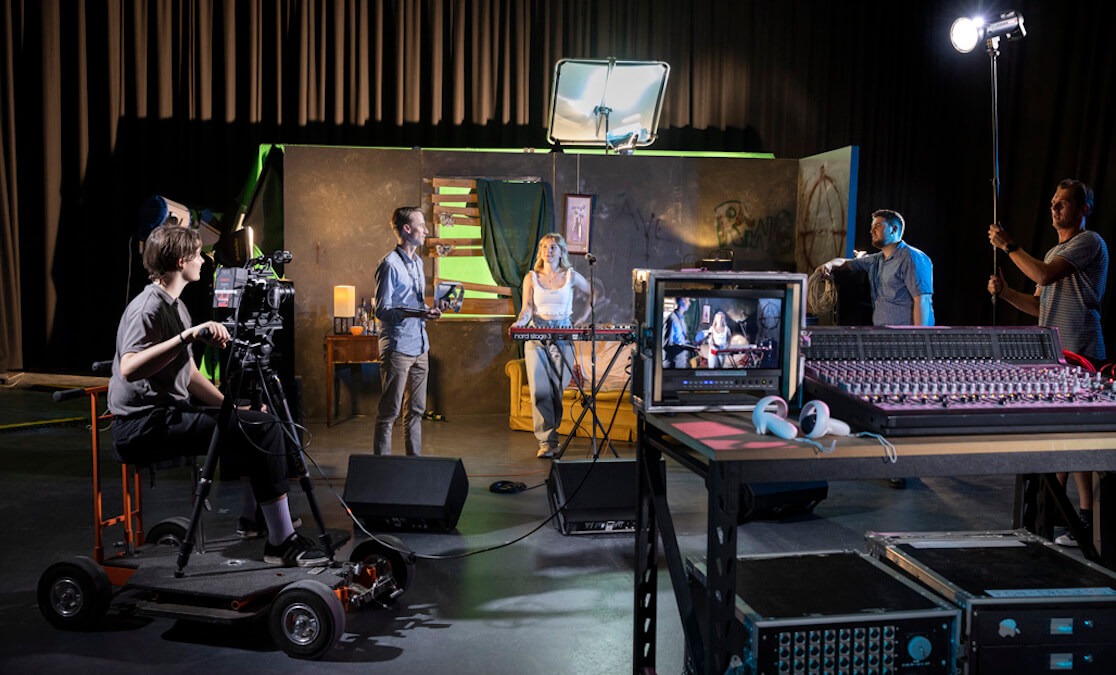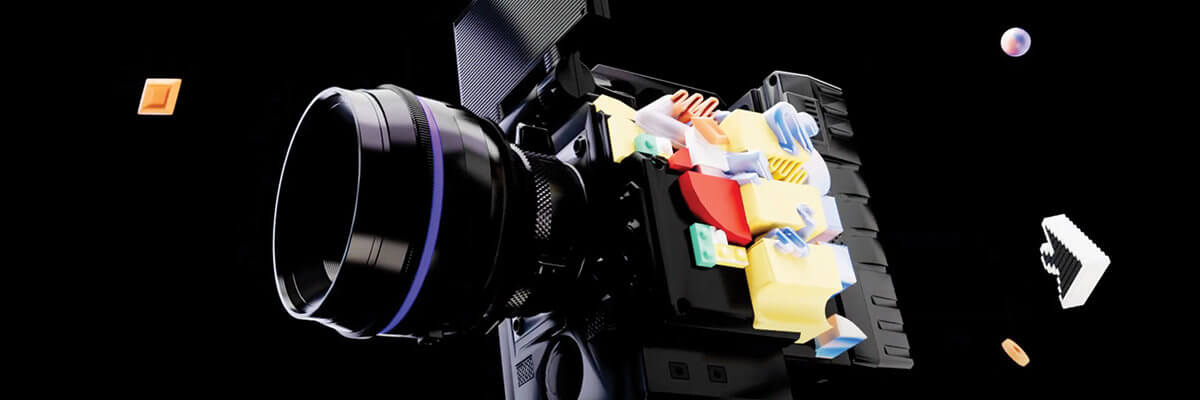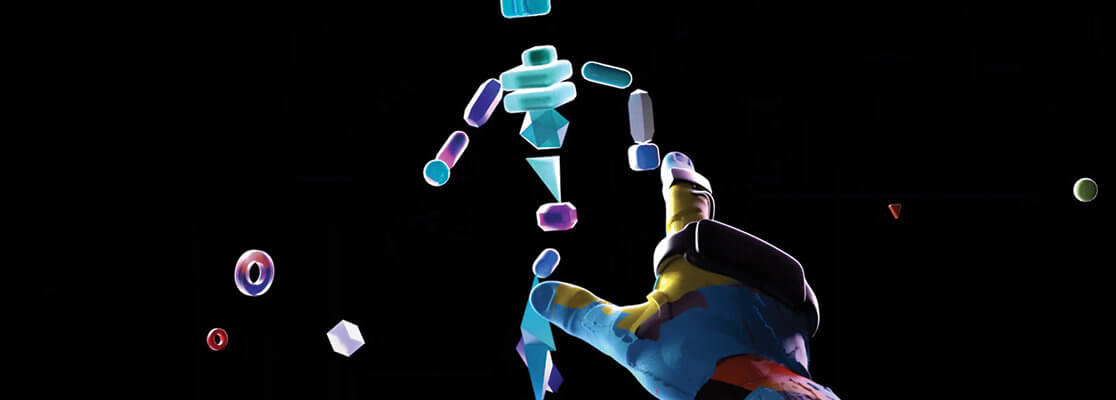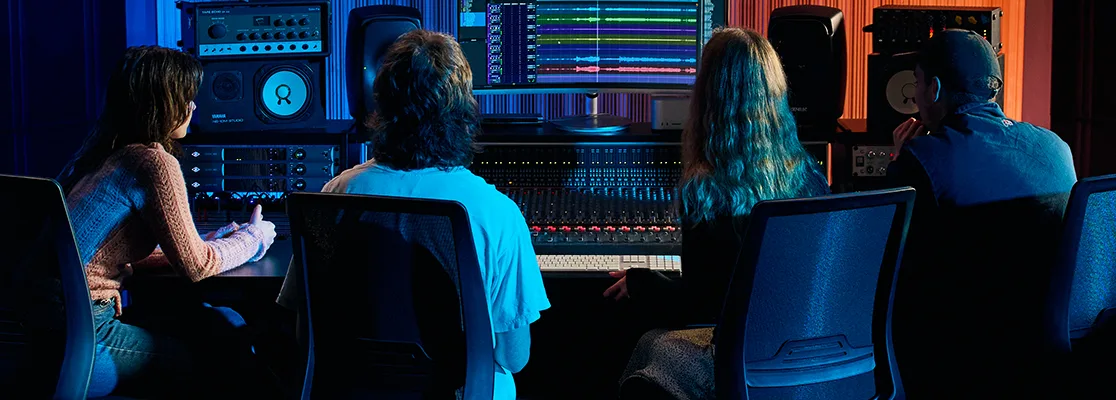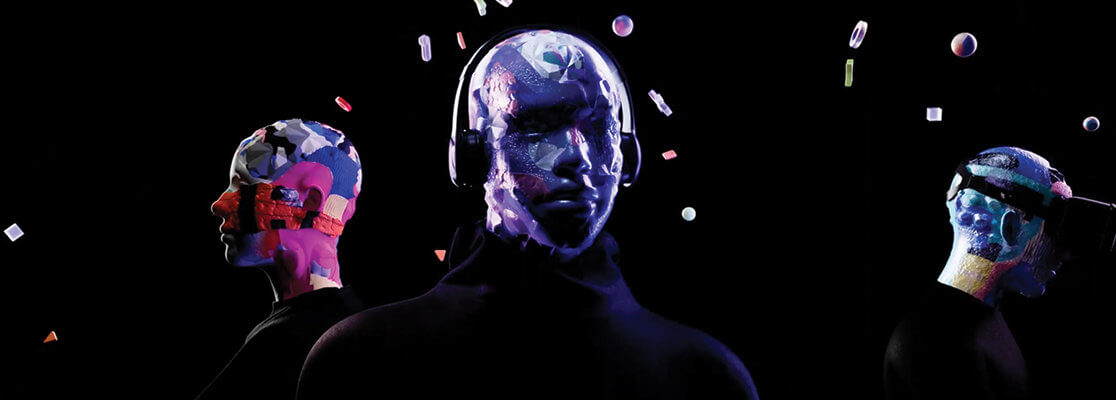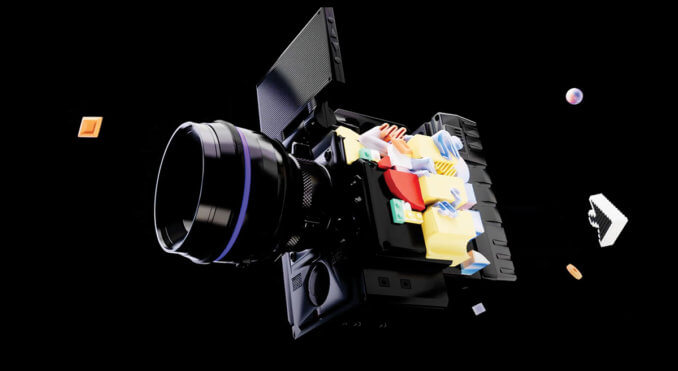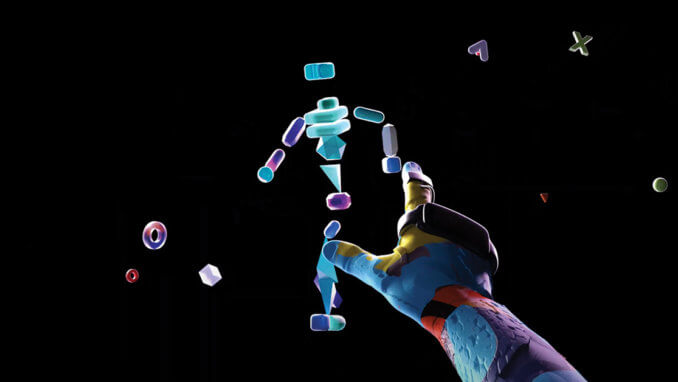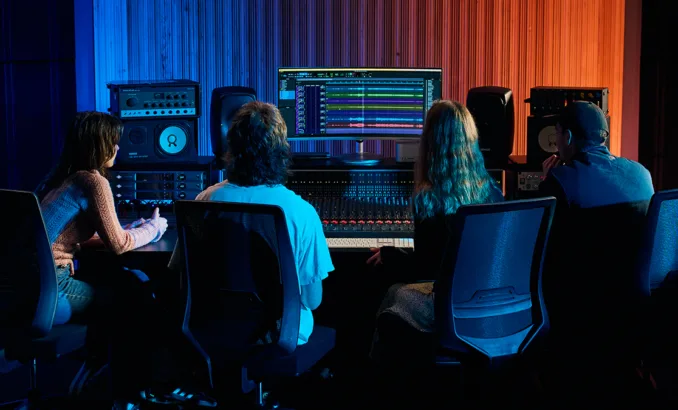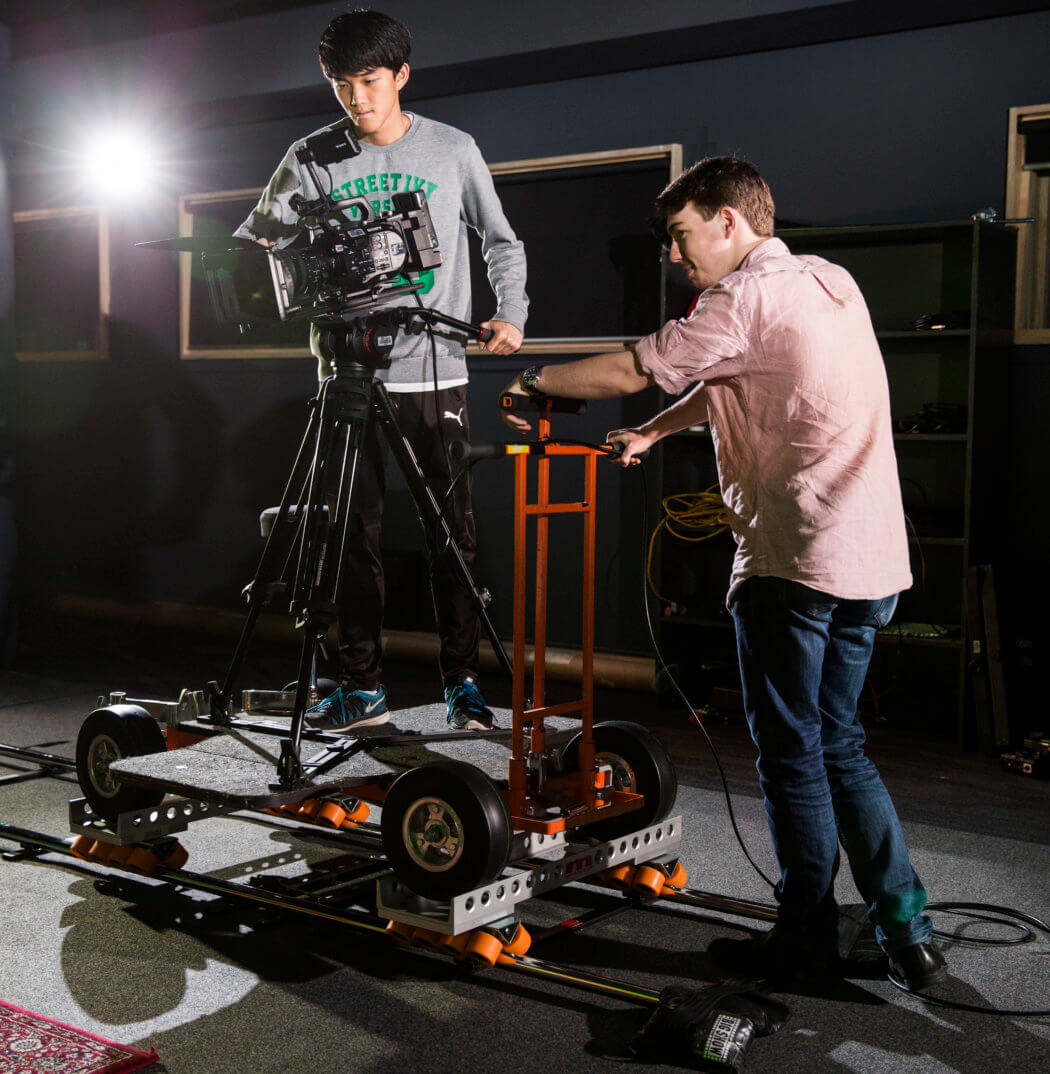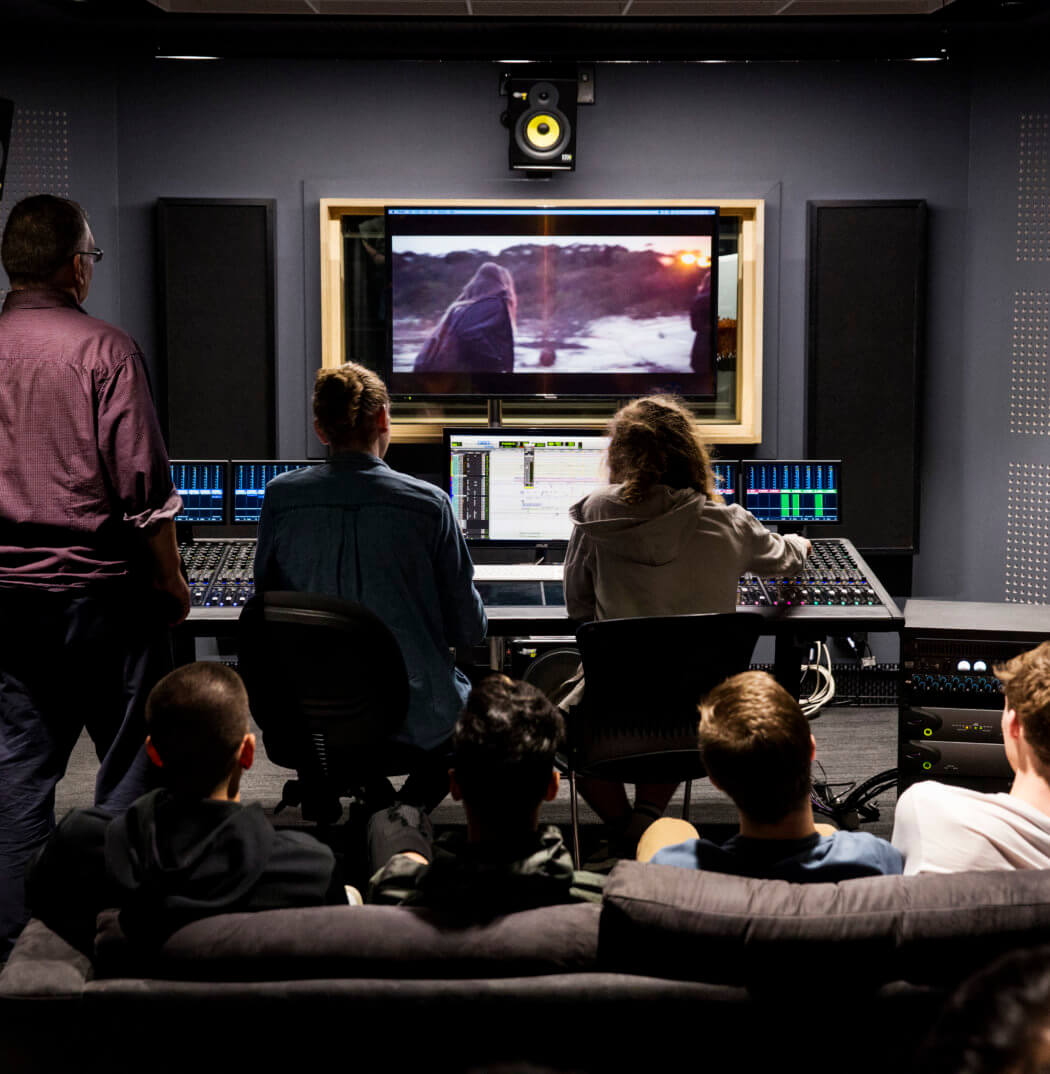Associate Degree of Film
A DEGREE THAT COVERS EVERYTHING FROM CONCEPT TO THE FINAL CUT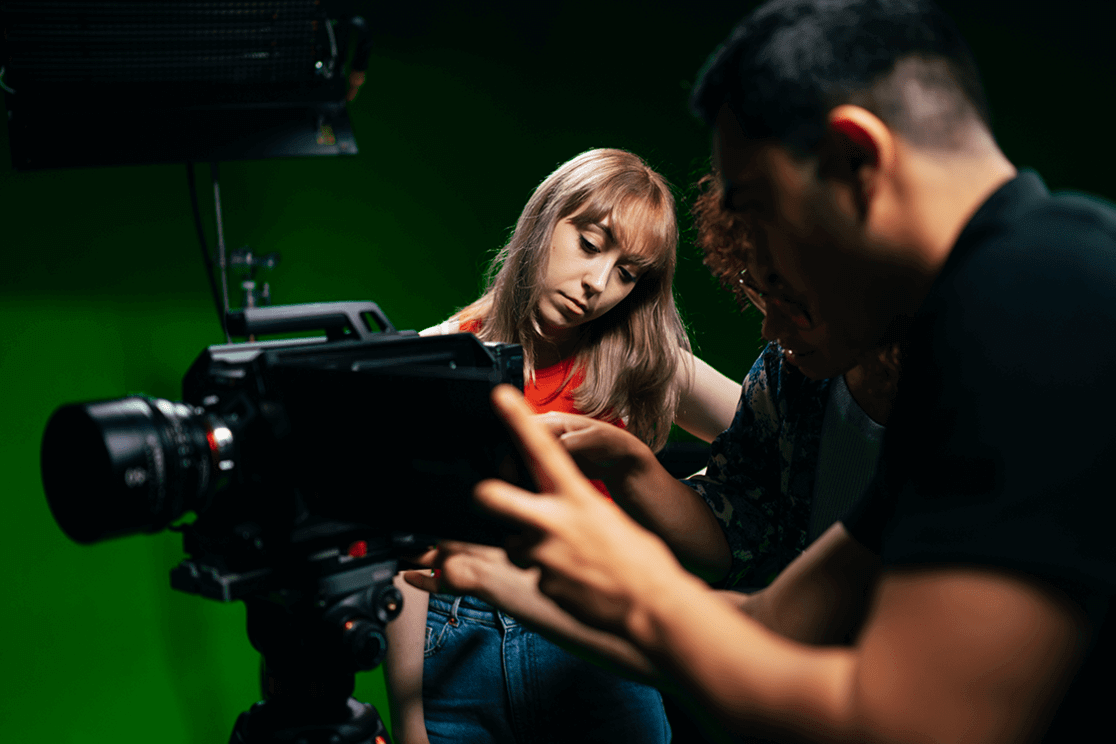
Units x Costs ($AUD)
8 x $2,999
4 x $3,236
2 x $5,998
Indicative Annual Course Fee*
(based on 1.0 EFTSL)
$24,940 AUD Year 1
$23,992 AUD Year 2
Plus Student Services and Amenities Fee (SSAF)
* The Indicative Annual Course Fee reflects that students are charged fees on a per unit basis and the fee for a unit may increase.
For more information view the SAE Fee Schedule or visit the Fees & Payment page.
Units x Costs ($AUD)
8 x $3,495
4 x $3,773
2 x $6,990
Indicative Annual Course Fee*
(based on 1.0 EFTSL)
$29,072 AUD Year 1
$27,960 AUD Year 2
Plus Student Services and Amenities Fee (SSAF)
* The Indicative Annual Course Fee reflects that students are charged fees on a per unit basis and the fee for a unit may increase.
For more information view the SAE Fee Schedule or visit the Fees & Payment page.
Complete your course faster by studying units over 15 months (4 trimesters).
Complete your course faster by studying units over 15 months (4 trimesters).
Whilst still classified as a full-time study load, you will complete the units over two years (6 trimesters).
If you want to take a little longer, that’s ok too. We’ll help you work out the best study load to suit your needs.
Note: Part-time is not available for international students.
September 2025
February 2026
May 2026
September 2025
February 2026
May 2026
September 2025
February 2026
May 2026
September 2025
February 2026
May 2026
September 2025
February 2026
May 2026
September 2025
February 2026
May 2026
Your creative career starts with SAE
Course Structure
The Associate Degree of Film has two stages that provide foundational learning and applied skill.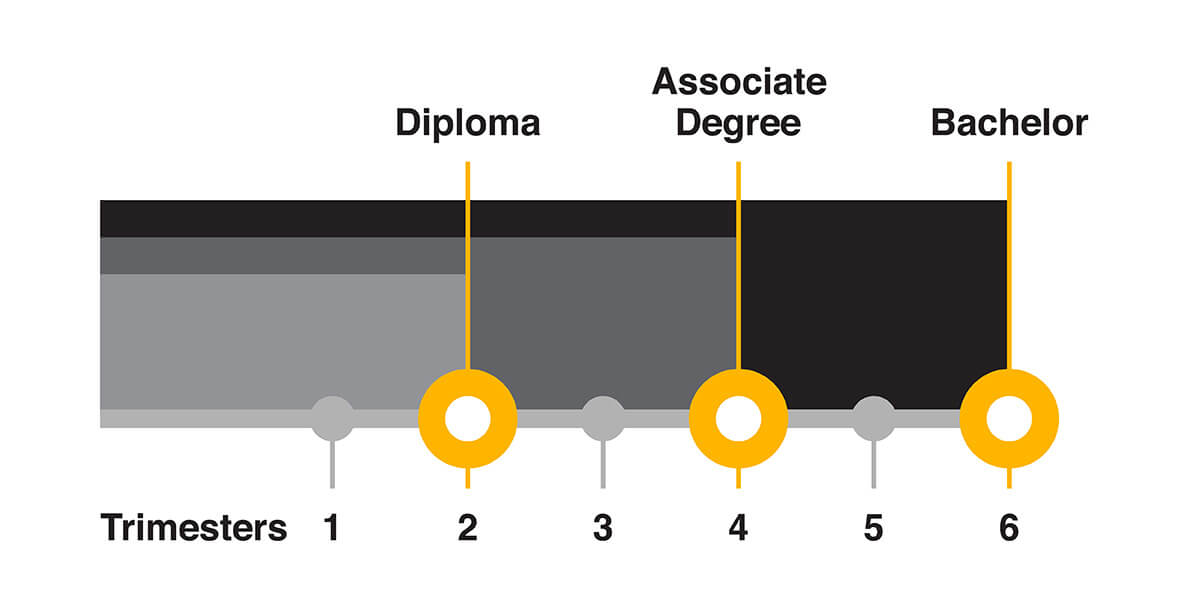
This unit introduces you to the fundamental principles of screen studies, including theory and history, to explore ways in which these principles are connected to screen practice. Emphasis is placed on how these concepts and approaches work within screen production, allowing you to develop analytical, critical reflection and creative thinking skills by applying your understanding of topics in project-based activities. Finally, this unit should assist you in becoming more critically aware of your craft and introduce you to ways of developing your knowledge of screen production.
This unit aims to instil a basic working knowledge of the structures, aesthetics and technologies involved in digital post-production. There is a particular emphasis on the editing process, as well as a general introduction to audio mixing, titling, colour grading and authoring processes within an industry-level non-linear editing tool.
Editing techniques and approaches vary between different mediums and this unit focuses on both documentary and drama workflows and file management protocols. Effective communication of narrative is the main focus of the unit, and you will learn to edit for narrative clarity, performance, subtext and dramatic effect. Historical and contemporary perspectives on montage theory and continuity editing theory will be explored to broaden your understanding and approach to the art of editing.
You will be introduced to the theory and principles of storytelling across a range of contemporary creative media contexts, which will then be applied to the creation of storytelling documents appropriate to your discipline. Theoretical approaches to plot, structure, character, story world, theme and genre will be explored and applied to a range of story development tools to engage your audience. Feedback processes and reflection are essential in the development of engaging stories, and you are expected to document your process and feedback from your facilitator and peers.
In this unit, students will draw upon practical theories of screenwriting and engage in industry standard iterative practices to produce high quality screenplays for short film production. The unit will introduce strategies for concept development, provide students with the opportunity to refine supporting documentation such a synopsis, outline or treatment, and guide students in applying stylistic conventions and narrative theories to their story ideas. The unit focuses on communicating strong characters and story worlds on the page, and crafting effective dialogue and scenes that engage audiences emotionally. Screenwriting is a learned craft that requires discipline, perseverance and an understanding of industry practice. You will engage with professional feedback processes as you develop your story concepts through to script stage, and then a pitch deck and final draft script.
In this unit, students will strengthen and consolidate their emerging filmmaking skills through the application of industry standard directing and producing techniques. The unit will introduce key principles of scene analysis and directing for students to produce a short showreel scene, and guide students to the best praxical application of directing and producing protocols. The unit focuses on the essential collaboration of directors and producers to work together to deliver high-quality, on-screen outcomes such as complex and realistic actor performances, and a shared creative vision. Understanding the roles of the director and producer and the need to support each other in a collaborative group to realise the best possible on-screen outcomes is an essential part of professional filmmaking, and will establish and hone transferable skills necessary for your work at SAE and beyond.
You will be introduced to the craft of filmmaking through participation in practical film shoots. Introductory learning of camera exposure, lighting and sound equipment, will be supported by a study of the fundamentals of frame composition and cinematography. The key roles and responsibilities of a working film crew, production processes and protocols are covered, including workplace health and safety. Familiarity with the using film production equipment and its safe assembly is as important in this subject as the technical and creative elements of visual storytelling.
Sound in the environment is crucial in our daily lives and in the production of nearly all media. When working with sound, we constantly desire to control our acoustic environment in the first instance to obtain uncontaminated recordings and, secondly, to clinically listen to and work with these recordings. The goal of this Unit is to guide you through and expose you to various disciplines of sound and sound recording that exist outside of the controlled environment of the studio—to lead through sonic encounters with the world around us. From Film sound and its associated location recordings, documentary recordings and acoustic ecology to recreating these environments through Foley recording, this Unit aims to expose you to practical and theoretical experience with location sound. Exploring recording devices, microphones and microphone techniques to multi-track digital audio workstations (DAWs)– this course expands through ideas and practices of location sound, exposing these components and exploring their connection to various media.
This unit explores the concepts of entrepreneurship, innovation and project design. You will develop approaches to identify promising opportunities and actionable strategies to transform them into tangible successes. Through exposure to developing new ideas, processes and ways of working - both individually and in entrepreneurial teams - you will hone skills to put creative ideas into practice and achieve real-world impact.
As Alan Kay explained, "The best way to predict the future is to create it", so let's get at it!
In CIM210 you will be working on interdisciplinary projects that relate to some of the most important concepts in contemporary media production. You will learn practical and analytical skills in order to help you develop your creative powers and meet briefs that take you out of your comfort zone. You will need to bring all of the skills you have learned so far: technical skills, research skills, communication skills and a growth mindset, and be prepared to encounter new concepts and new ways of working.
Media and culture are not simply entertainment, but something that affects the “real world”, our everyday lives, and our worldviews. As such, we will not ask whether media accurately reflect the real world but instead ask how media shape, reinforce, and challenge power structures that influence our understanding of the world and ourselves. This unit takes a ‘critical theory’ approach to analyze media and culture. In this unit, you will explore media texts, contexts and meaning, society and subjectivity, pop culture aesthetics, and critical cultural discourses that inform creative media practices.
Drawing on a range of creative content and analytical frameworks, you will be encouraged to develop ways of thinking about media and culture that demonstrate a broad awareness of aesthetic principles and stylistic trends; subjectivity, agency, ethics, and relations of power; contexts, disciplines and discursive formations. In support of this exploration, you will produce a range of media artifacts that explore and contextualize the relationship of media to culture through individual analysis, collaborative and interdisciplinary creative practice, and critical reflection.
In this unit, you will step into the dynamic world of filmmaking, mirroring industry processes from conception to distribution. Through hands-on experience, you will navigate the stages of development, pre-production, principal photography, post-production, and distribution. Emphasising a real-world approach, you will collaborate on creating a short film, honing your skills in creative leadership and teamwork as you specialise in a critical production role. FLM216 fosters a holistic understanding of the filmmaking craft and prepares you for the challenges and opportunities in the landscape of the industry.
This unit offers a deep dive into the art and craft of documentary filmmaking. Through a series of hands-on workshops, insightful lectures, and practical exercises, participants will learn the fundamental principles of storytelling, cinematography, sound design, and editing specific to the documentary genre. From conceptualization to production and post-production, students will explore the ethical considerations, creative techniques, and technical skills essential for creating impactful and authentic documentaries. Drawing inspiration from a diverse range of documentary styles and filmmakers, participants will have the opportunity to develop their unique voice and vision while gaining practical experience in crafting compelling narratives that resonate with audiences.
Cinematography II will expand your knowledge in the areas of camera and lighting, which are essential skills required to have a career as a Director of Photography. The skills you learn in this unit can be applied to any form of film/TV production; short films, documentaries, music videos, TV commercials etc. You will learn to use technically advanced cameras, prime lenses and follow-focus units, as well as learn to shoot in LOG format (flatter colour space) and utilise LUTs (Look Up Tables) to enhance the look of your footage in colour grading. Lighting fixtures will be utilised in a variety of studio shooting scenarios, including day/night interiors and also green screen sequences. ND Filters will be explored in more detail, adding another creative tool to your filmmaking arsenal. Further focus will be placed on effective shot coverage and framing techniques in both drama and documentary settings.
This unit seeks to deepen an understanding and proficiency in advanced techniques. It delves into sophisticated methodologies across color grading, visual effects, sound design, and advanced editing. Through rigorous exploration and practical application, students will gain insight into the complexities of post-production workflows and refine their technical skills. Emphasizing critical analysis and practical exercises, this academic unit provides a platform for participants to engage in scholarly discourse, collaborative learning, and hands-on experimentation. By interrogating theoretical frameworks and industry practices, participants will develop a nuanced understanding of film post-production and enhance their ability to produce compelling cinematic works.
Learn using Industry Tools & Software







ASSOCIATE DEGREE OF FILM
The Associate Degree of Film course at SAE puts you in the spotlight from day one, helping you gain the practical experience and technical knowledge needed to launch yourself in the world of motion pictures.
Starting with the fundamentals and rolling through to the finer, more complex aspects of cinematography, you’ll acquire a very particular set of skills during your time at SAE. Choose to specialise in either Production – where the focus is on directing and producing, or Post-Production – where you’ll refine your skills in editing, compositing, and colour grading.
Your growth and development as a creative practitioner will be assessed through the completion of industry-based projects. This will ultimately help you build up a body of work and portfolio to share with potential employers or your first client.
In preparation for an industry that commands agility and adaptability, you’ll cut your creative teeth on projects alongside your peers. As your skills develop and you work on more dynamic projects, you’ll apply your experience to cross-discipline projects in audio, games, design, or animation. By the end of your course, you could be collaborating with fellow students across all SAE’s disciplines.
With an Associate Degree of Film, you’ll be ready for cutting-edge industry roles using modern creative business concepts and strategies. Career options include Video Editor, Film Producer, Broadcast Specialist, or Camera Assistant.
Making the leap from being a fan of the film to becoming a force in the film happens at SAE.


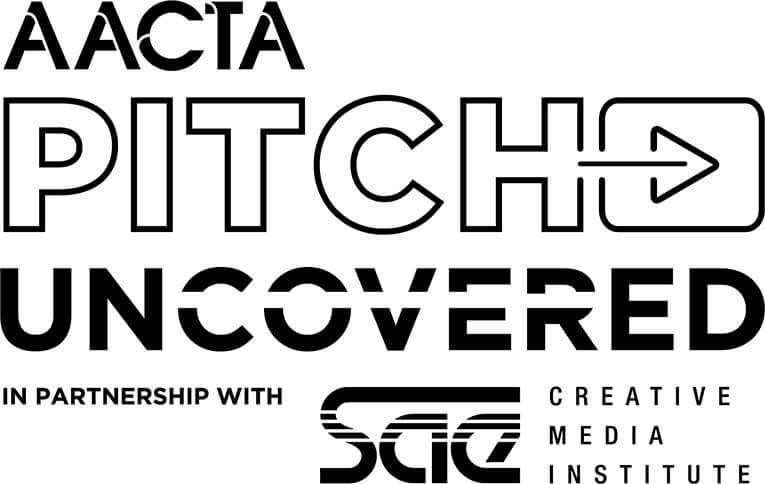
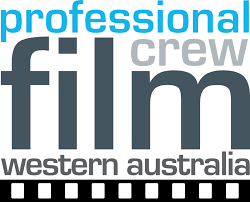

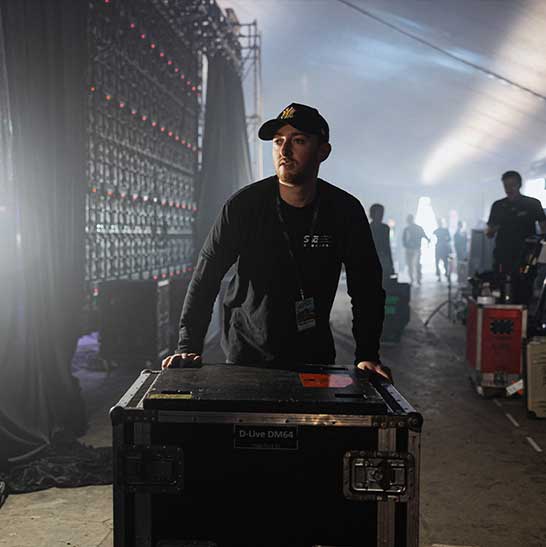
Career Outcomes
What jobs will this course lead to?
- Director
- Assistant Editor
- Broadcast Designer
- Production Designer
- Production Assistant
- Producer
- Camera Assistant
- Screenwriter
- Visual Effects Artist
- Creative/Content Producer
What our students say about SAE


Jovian Ubukata
Bachelor of Film, graduated 2024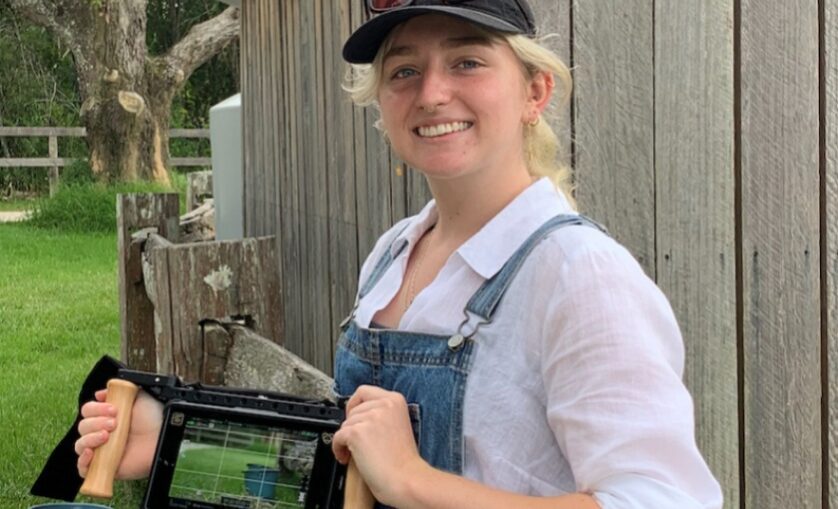
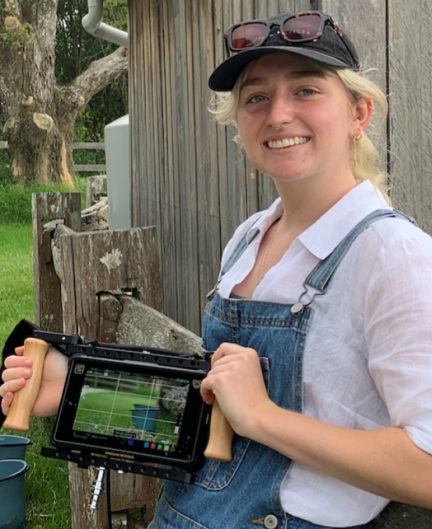
Mia Charleson
Bachelor of Film (Production), graduated 2024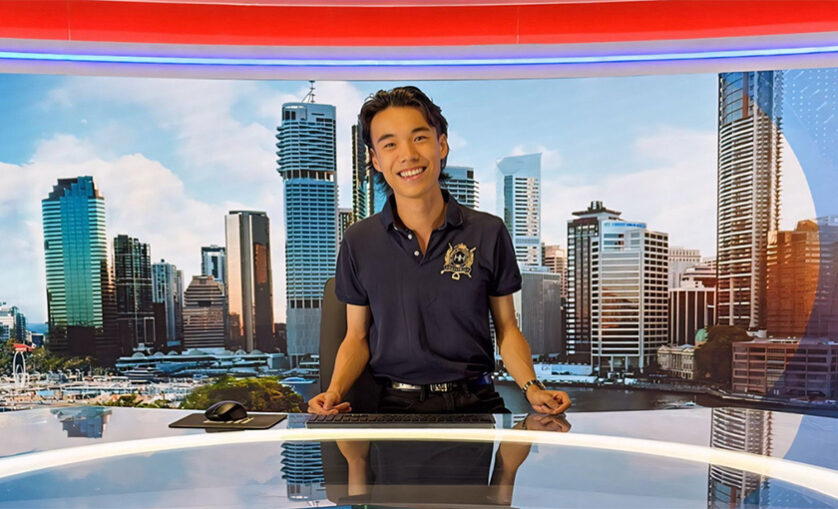

Hayden Huynh
SAE Alumni | Current Job: Producer, Channel NineSAE Associate Degree of Film offers:
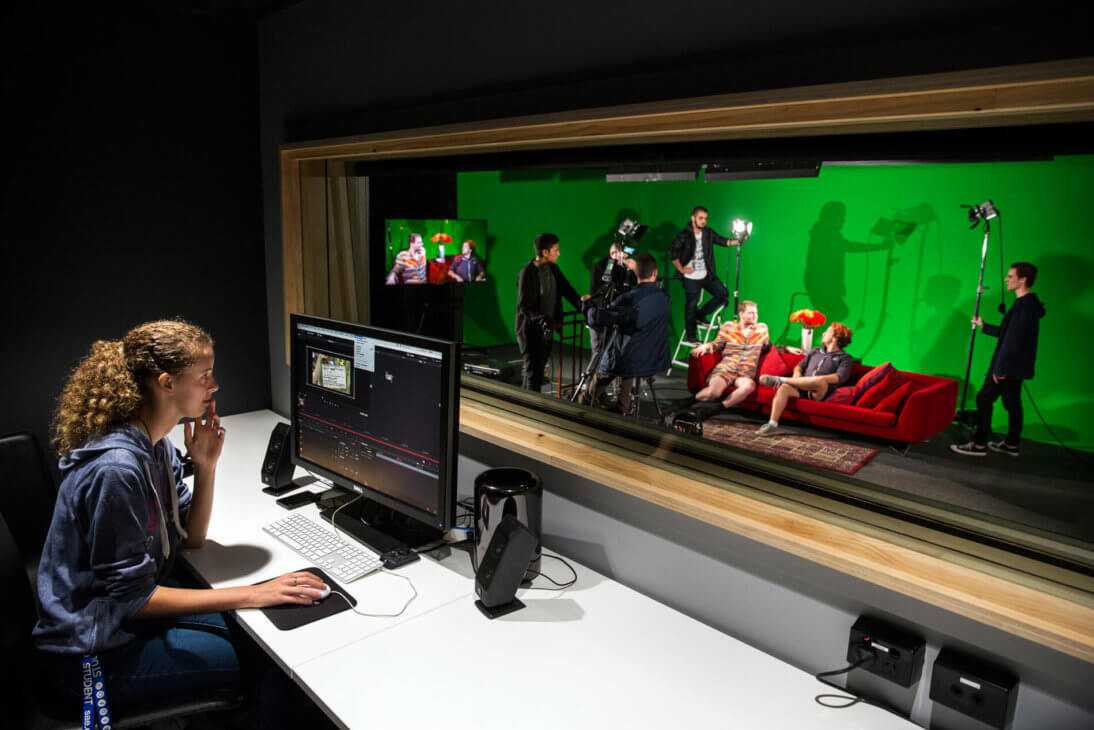
YOUR CAREER IN FILM BEGINS NOW
Film Skills
FEE‑HELP* is an Australian Government loan scheme that assists eligible fee paying students pay all or part of their tuition fees. It cannot be used for additional study costs such as accommodation or text books. The total amount of FEE‑HELP a person can use is known as the ‘FEE‑HELP limit’.
Once a person begins using FEE‑HELP, the amount of FEE‑HELP they have left to use is known as their ‘FEE‑HELP balance’.
* Terms and conditions apply. For the latest updates regarding FEE-HELP please refer to sae.edu.au/fees
SAE has three intakes per year: February, May and September. Short courses and certificates courses may have different intake timings. View our academic calendar for trimester start dates or contact your campus for further information.
Equipment is available for on and off campus production work, with some changes to the hire and use of equipment, guided by health and hygiene protocols. We have made some slight adjustments to teaching and assessments to ensure that projects will not be impacted. For more information about hiring equipment and booking studios, please contact Student Services or the Tech Team at your campus.
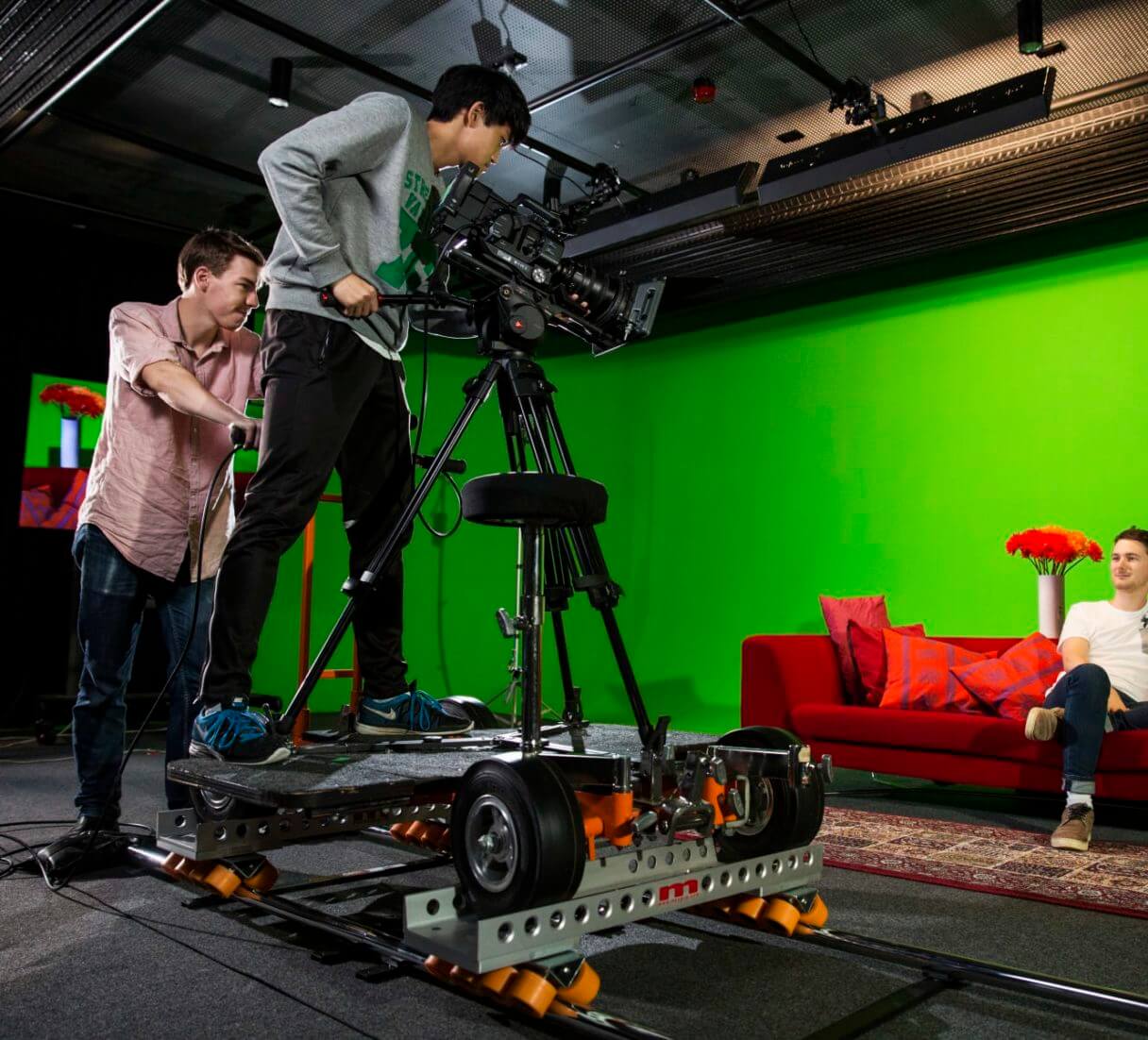
Easy transition into the Bachelor of Film
SAE Diploma, Associate and Bachelor Degrees are structured in an integrated course framework.
This means that when you complete an SAE Associate Degree of Film you will be awarded the maximum credit points available, providing you with the opportunity to seamlessly transition into the higher level Bachelor degree qualification if you choose to do so.
CREDIT AND RECOGNITION OF PRIOR LEARNING
SAE may recognise your prior learning and may grant credit towards satisfying the requirements for a higher-level program. This is applied where previous learning is considered equivalent to the content and learning outcomes prescribed for units within the program.
For full details, please refer to SAE’s policy on recognition of prior learning and credit transfers.
